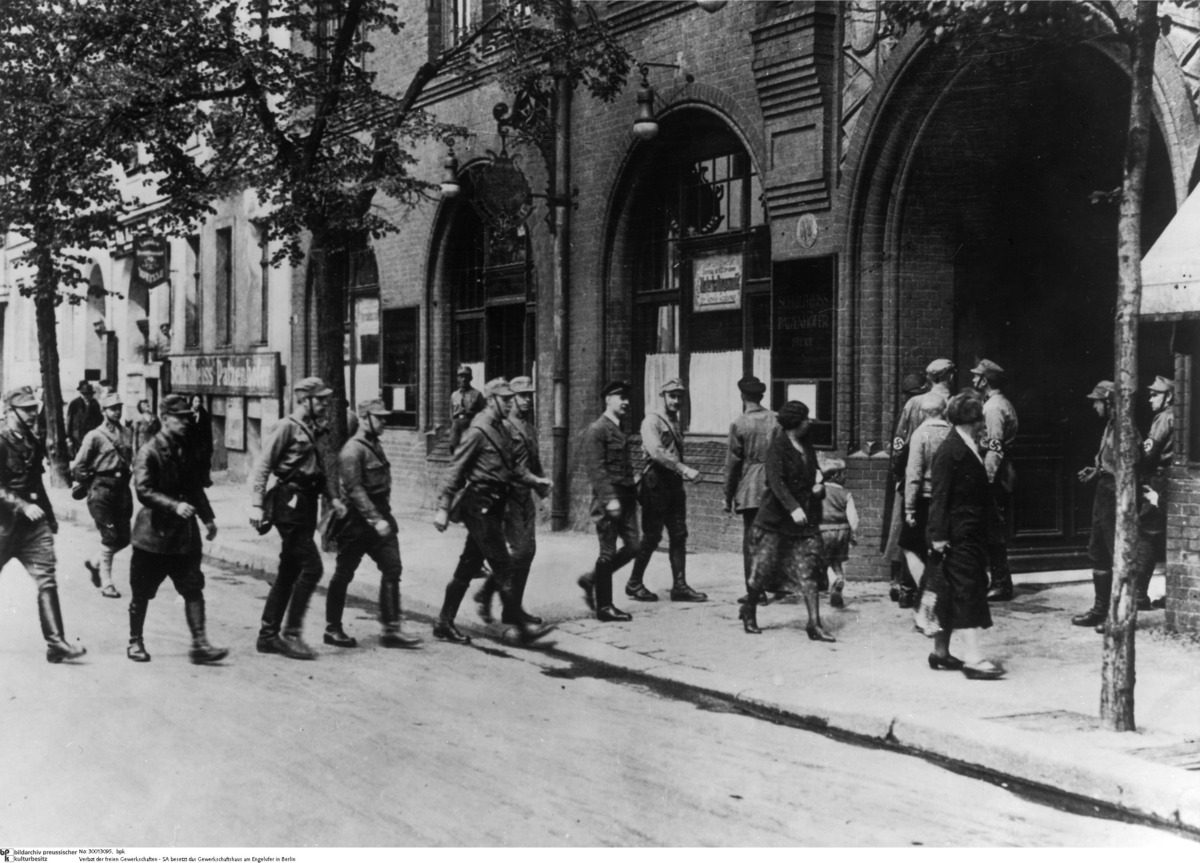Abstract
German labor posed a serious political and organizational problem for
the Nazi leadership. Not only was it largely Social Democratic or
Communist, it was also strongly attached to its labor unions. After
Hitler came to power, crushing the unions and bringing German workers
under Nazi control became a matter of top priority. In the first weeks
of Nazi rule, union leaders suffered arbitrary violence and suppression,
as did other opponents of the regime. In order to keep the General
German Trade Union Federation [Allgemeiner
Deutscher Gewerkschaftsbund or ADGB] from disintegrating, Chairman
Theodor Leipart declared his organization politically neutral.
Afterwards, the ADGB turned away from the SPD and tried to cooperate
with the Nazis. As part of this, Leipart and a few leaders of Christian
and liberal labor unions supported the Nazi festivities on May 1, 1933.
For the foreseeable future, they intended to merge into a single
national labor union. What they didn’t know, however, was that Robert
Ley’s “Action Committee for the Protection of German Labor” had been
planning the complete elimination of all unions since early April. In a
countrywide action on May 2, 1933, members of the SA, the SS, and the
National Socialist Factory Cell Organization
[Nationalsozialistische
Betriebszellenorganisation or NSBO] occupied the buildings and
offices of all ADGB organizations, seized their assets, and put their
officials in “protective custody.” On May 4, all remaining labor unions
submitted to the control of NSBO commissioners. On May 10, the German
Labor Front [Deutsche Arbeiterfront or DAF] was founded as a National
Socialist association of employees and employers, under the direction of
Robert Ley.
